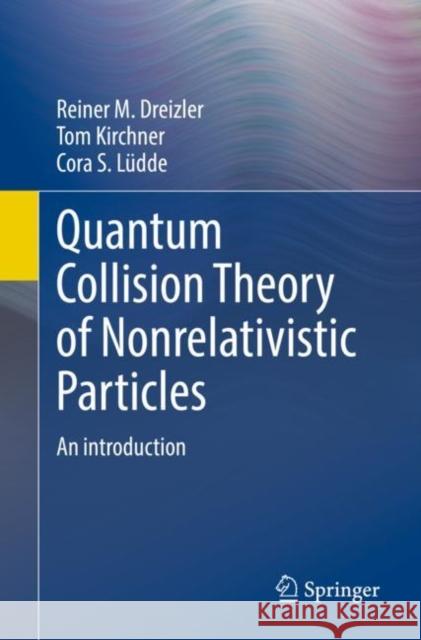Quantum Collision Theory of Nonrelativistic Particles: An Introduction » książka
Quantum Collision Theory of Nonrelativistic Particles: An Introduction
ISBN-13: 9783662655900 / Angielski / Miękka / 2023 / 224 str.
This book introduces the scattering theory of nonrelativistic systems, a standard tool for interpreting collision experiments with quantum particles at energies not too high. The goal is to explore the interaction between particles and their properties. The authors cover the basics of the theory through a detailed discussion of elastic scattering using the stationary Schrödinger equation and the Lippmann-Schwinger equation. These remarks are supplemented by a consideration of the time-dependent formulation of scattering theory. Selection rules for effective cross sections due to symmetries conditioned by the structure of the interparticle forces and the scattering of spin-polarized particles are discussed. The foundations for the treatment of inelastic processes are laid and explained by application to three-body and nucleotransfer processes.In all chapters, the more technical, mathematical aspect and the more physics-oriented explanations are separated as far as possible. The explanations are well comprehensible and suitable to introduce the reader to the physics of impact processes.This book is a translation of the original German 1steditionStreutheorie in der nichtrelativistischen Quantenmechanikby Reiner M. Dreizler, Tom Kirchner & Cora S. Lüdde, published by Springer-Verlag GmbH Germany, part of Springer Nature in 2018. The translation was done with the help of artificial intelligence (machine translation by the service DeepL.com). The present version has been revised extensively with respect to technical and linguistic aspects by the authors. Springer Nature works continuously to further the development of tools for the production of books and on the related technologies to support the authors.
This book introduces the scattering theory of nonrelativistic systems, a standard tool for interpreting collision experiments with quantum particles at energies not too high. The goal is to explore the interaction between particles and their properties. The authors cover the basics of the theory through a detailed discussion of elastic scattering using the stationary Schrödinger equation and the Lippmann-Schwinger equation. These remarks are supplemented by a consideration of the time-dependent formulation of scattering theory. Selection rules for effective cross sections due to symmetries conditioned by the structure of the interparticle forces and the scattering of spin-polarized particles are discussed. The foundations for the treatment of inelastic processes are laid and explained by application to three-body and nucleotransfer processes.In all chapters, the more technical, mathematical aspect and the more physics-oriented explanations are separated as far as possible. The explanations are well comprehensible and suitable to introduce the reader to the physics of impact processes.











